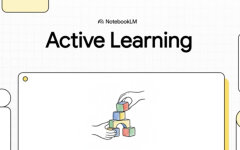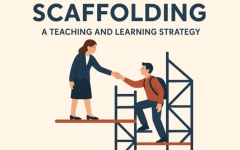Teaching and Learning Bulletin
16/10/2025 2025-10-16 16:02Teaching and Learning Bulletin
Using reflective moments to share, evidence, and enhance our practice
In a previous Teaching and Learning seminar, we explored reflection on action. This is the process of examining our teaching after the event to learn, refine, and grow. This week, we started to look at ways in which we can make the idea explicit and shareable. Our focus was on how we, as an academic team, can evidence and share our practice, where we shared the process of what we do, learn from each other, and think critically about how to make it better.
In our session, we examined how reflection becomes meaningful when it’s linked to evidence of practice student work, feedback, classroom observations, and specifically examples of active learning in action. Our focus was about moving from “What did I teach?” to “How do I know my students learned?”. The seminar put forward the notion that once we start to engage with the practice or the idea of Donald Schön’s concept of reflection on action, is it then possible to share the moments of reflection and change amongst ourselves?
What the seminar wanted to reach was answers to the following:
- How do we demonstrate what we learn as we participate in our academic teaching sessions? And,
- How do we share this with each other?
The opportunity to share our work with our colleagues means that our reflection can become collaboration where there is a collective process of learning and improvement.
Why does this matter?
Across the sector, expectations from students in terms of what they want from their academic lecturers and from their studies have changed. Expectations for evidence-based teaching has also grown. Frameworks such as the BQA Review and the UK Teaching Excellence Framework (TEF) both highlight the importance of demonstrating impact through student engagement and valuing teaching.
At EUB, this means moving from describing the principles that underpin our teaching methods to showing their effectiveness. Our focus is on beginning to collect concrete “reflection on action” examples which are supported by videos, photographs, or annotated student work that capture how active learning strategies are used in practice.
This not only helps us meet external expectations but, more importantly, strengthens our internal culture of professional learning. We believe that good teaching is framed through clear expectations, support, and a shared culture of continuous improvement.
How can we do it in practice?
Our seminar discussions centred on practical ways to make reflection visible and actionable:
- Evidencing practice: Each academic is encouraged to record three “reflection on action” moments, supported by evidence and a brief explanation of impact.
- Framing our questions to allow for openness and dialogue: What did you do? …. Why did you do it? How did it go? How do you know? What will you do differently? ….
- Collaborative sharing: Through the recording of the moments, academic staff can show how things do not always work and how things can be noticed and improved. At regular intervals throughout the academic year small-group discussions will allow colleagues to share what has and has not worked in their classrooms, identify transferable techniques, and link them to our shared teaching standards and principles.
- Constantly improving: Using active learning tools such as think-pair-share or inquiry-based learning lecturers can make learning more visible and measurable and share how these were implemented and how they worked (or didn’t).
By embedding these cycles of evidence and reflection, we aim to find out if we can begin to see a clearer picture of our impact on students’ engagement, confidence, and skills.
Sharing Good Practice at EUB
As a teaching community, sharing is one of our most powerful tools for improvement. When colleagues talk about what works, show examples of activities, and reflect openly on challenges, we aim to begin to build a collective knowledge base that benefits us all.
As a follow up to the seminar, the TLC will continue to develop opportunities for cross-disciplinary sharing, where colleagues can showcase their reflections and evidence in a supportive environment. The TLC will support academic faculties to:
- Document and store “Reflection on Action” evidence through the TLC portfolio.
- Analyse practice using research-informed frameworks and feedback.
- Facilitate opportunities for sharing and peer discussion through our seminar series and learning circles.
Our collective goal is to move beyond simply carrying out reflection to embedding a culture of inquiry, evidence, and professional collaboration across EUB.
References
Schön, D.A. (1983). The Reflective Practitioner: How Professionals Think in Action. Basic Books.
EUB Teaching and Learning Centre (2025). Reflection on Action Seminar and Portfolio Framework.









